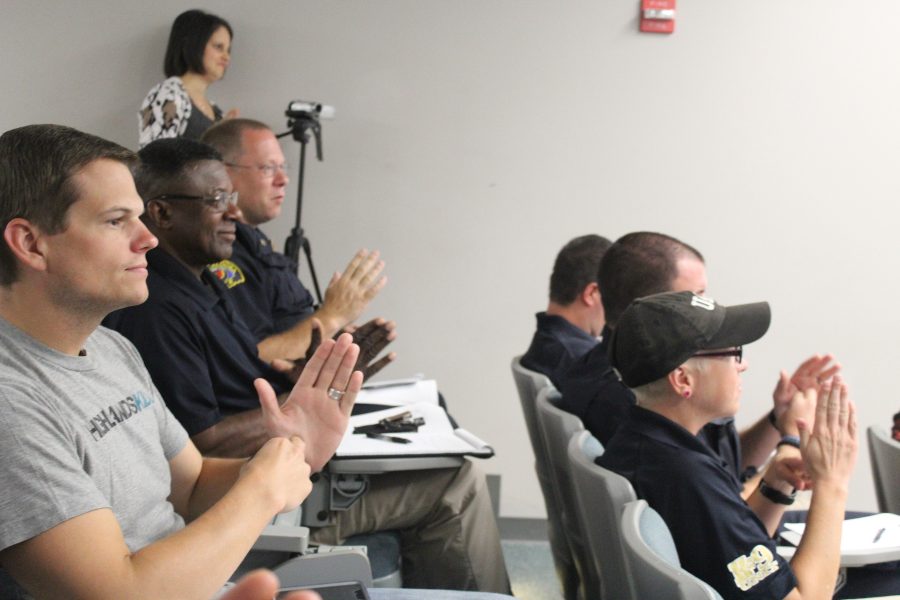Darrin J. Griffin, assistant professor of Communications Studies and faculty advisor to the group Deaf Hands Speak, and Erin Powell, an interpreter who is teaching an American Sign Language class in the University’s Honors College this semester, will host a training session for about 24 law enforcement officers from across Central and North Alabama. Held on Tuesday, the purpose of the session is to alleviate the communication barrier between sworn law enforcement officers and deaf citizens.
In the training session, Griffin and Powell will teach officers how to understand who is deaf, what deafness is, deaf culture, the deaf community, American Sign Language, the Americans with Disabilities Act and how to effectively engage the deaf community through law enforcement.
“You have to know who deaf people are and that they have a community before you can understand how to police them,” Griffin said. “So we’re going to build up that foundation and then, the meat of it is effectively interacting with the deaf.”
Griffin said the most important part of policing the deaf community is knowing the legal implications. The ADA requires that deaf people have equal accessibility to places of public accommodation.
“They need interpreters and access to technologies to communicate with their families, and so a lot of times police are unaware and it becomes a legal issue,” he said.
Griffin’s parents are deaf, and he said that was always pretty normal to him. He went on to graduate from the University of Texas at Austin with a degree in deaf education and a desire to be an advocate for the deaf. He said his classes helped him understand all of the details of deaf culture and how it impacted his parents’ lives.
He said the need for advocates for the deaf community is ever present, so he takes the opportunity to assist those in need when he can. He has been looking into the topic of law enforcement and deaf advocacy for the last seven years. He currently teaches a class at the University during the interim sessions on deaf culture through the Communications Studies Department.
“Society, as the popular culture, doesn’t understand the implications of being deaf and the needs and resources that deaf people need to function,” he said.
It was only about three weeks ago that a deaf motorist, Daniel Harris, was shot and killed by a state trooper in North Carolina. Although it has not been determined that the death of Harris was a direct result of a communication barrier, it is still imperative that officers know how to interact well with those with disabilities.
“The police need to become aware of how to communicate with deaf people, what that might look like and how to avoid situations like this from ever happening again,” Sam Harris, brother of Daniel who is also deaf, told CNN affiliate WSOC.
Deaf people still have issues communicating with police because of the language barrier and lack of cultural understandings. It is well-known in the deaf community that deaf people are neglected by police for this reason, Griffin said.
The training session was originally going to be for just the Tuscaloosa Police Department, but TPD extended the invitation to all local law enforcement after the death of Daniel Harris.









